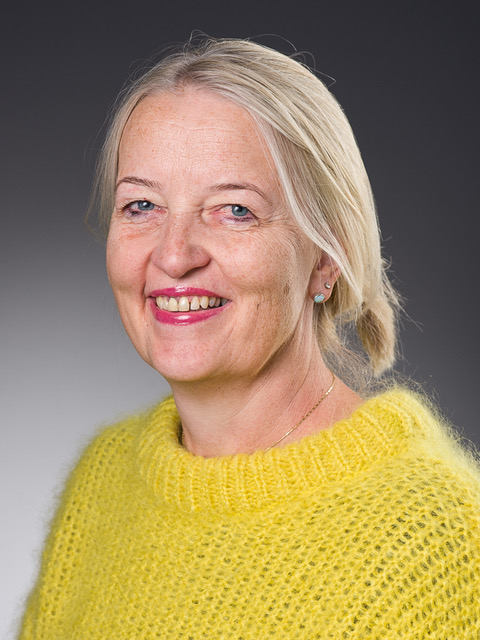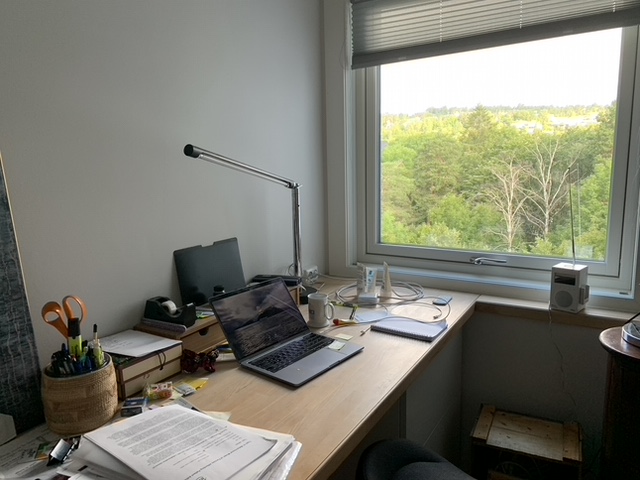
27 Jul Has the COVID19 changed your working routine and how can SmartWork support you in monitoring your health and wellbeing? – SmartWork asks office workers
While the work on the prototype of SmartWork platform continues and summer season hits Europe, SmartWork talks with the four representatives of its target group – office workers – about their health and wellbeing related to the telecommuting during the times of pandemic. We are interested to know how working from home has affected their physical and mental health and if the digital solutions like SmartWork can practically support the older office workers in situations like the one with COVID19 now and in the future.
According to the study by European Foundation for the Improvement of Living and Working Conditions (Eurofound), overall 37 percent of those currently working in the EU began to telework as a result of the pandemic. In some countries the percentage is even above 50%. Most of the workers are generally happy with the switch and plan to continue the telecommuting after the COVID19 crisis ends.
This week SmartWork talked to Anne Moen (59), Professor at the Department of Nursing Science at the University of Oslo.

SW: Anne, did your working routine change after the COVID-19 outbreak and the stay-at-home recommendations were issued?
AM: No, not really. I do the same things, using the same tools, working with the same people as before. Of course I don’t travel that often those days. As a professor I have a high degree of freedom and I was able to carry on with my work rather normally. I would even say that there were some improvements – I was waiting quite some time for the university to make the more flexible videoconferencing tools available and they were deployed very fast after the University restricted access and closed the buildings, giving me the opportunity to continue to work with my students virtually and have online meetings.

SW: Do I understand right that the imposed social distancing did not really affect your work and your general wellbeing in a negative way?
AM: No. On the contrary, it gave me new opportunities to take advantage of. I kept my routines, I went for a walk in the morning as I would do if I went to the office. I went out from home every day because there was noisy construction work going on at my house. At the beginning I worked from the neighbouring office and as soon as the university reopened I applied for access to the office again. So it was only three-four weeks when I was really away from the office.
SW: You were in regular contact with your students. How did they handle the situation?
AM: I think it went rather well, a few struggled when confined to their home, for different reasons. However, the university allowed the students to get access to our buildings soon after things calmed down a bit and these few students used this opportunity.
SW: Was there any moment when you felt stressed out more than before?
AM: Uncertainty came from the general situation in the society. I knew that following the general health advice was the right thing to do. I was able to keep up with my friends and family using the online applications. The situation did not stress me personally, despite the fact that I live in Oslo, the epicentre of COVID19 in Norway. However, the COVID19 infection rate was not that high here and we regained the control over the disease rather quickly.
SW: Do you think that the SmartWork services could help you or other office workers monitor their health and support them in those kinds of situations?
AM: I am not familiar with your concept or services. On a general level iCare, the service for efficient care management and health risk assessment of people the carers look after, seems interesting. The new channels of interactions between the patient and carer, as well as flexibility that comes with it have a lot of potential. We need tools that improve communication and collaboration. I am a hesitant to the “continuous monitoring” options, as this always comes with a challenge of security and privacy in handling, processing and understanding the massive amount of data. Thus, this needs to be considered carefully.
Read more about all SmartWork services on smartworkproject.eu/services/



